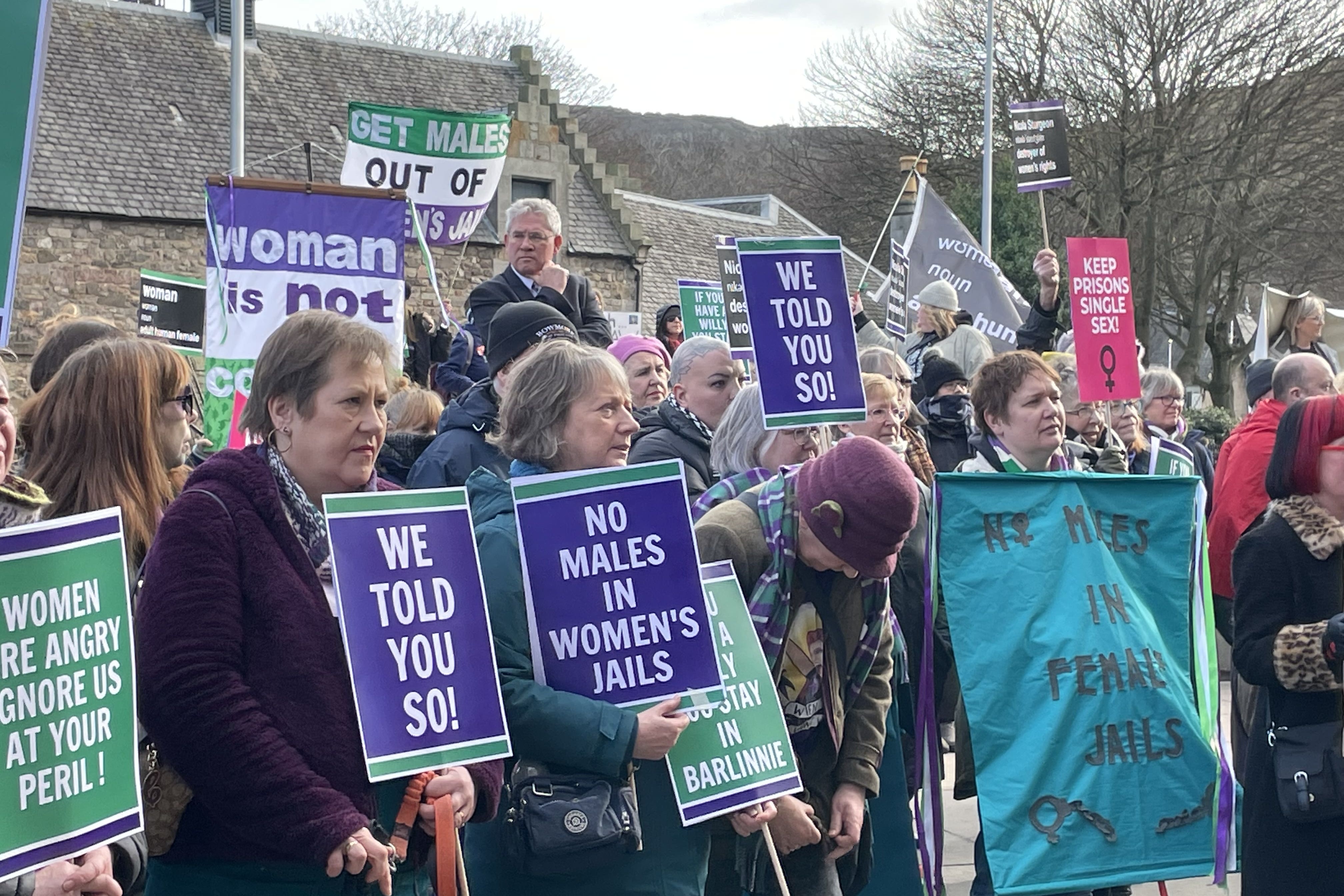UK’s highest court set to rule on definition of a woman
Supreme Court judges set to hear legal challenge over whether trans women can be regarded as female
Your support helps us to tell the story
From reproductive rights to climate change to Big Tech, The Independent is on the ground when the story is developing. Whether it's investigating the financials of Elon Musk's pro-Trump PAC or producing our latest documentary, 'The A Word', which shines a light on the American women fighting for reproductive rights, we know how important it is to parse out the facts from the messaging.
At such a critical moment in US history, we need reporters on the ground. Your donation allows us to keep sending journalists to speak to both sides of the story.
The Independent is trusted by Americans across the entire political spectrum. And unlike many other quality news outlets, we choose not to lock Americans out of our reporting and analysis with paywalls. We believe quality journalism should be available to everyone, paid for by those who can afford it.
Your support makes all the difference.Judges at the Supreme Court are to begin examining a legal challenge over whether trans women can be regarded as female for the purposes of the 2010 Equality Act.
The action is the latest in a series of challenges brought by the campaign group For Women Scotland (FWS) over the definition of “woman” in Scottish legislation mandating 50 per cent female representation on public boards.
The case centres on whether or not somebody with a gender recognition certificate (GRC) recognising their gender as female should be treated as a woman under the 2010 Equality Act.
It will set out exactly how the law is meant to treat trans people and could have future implications on single-sex spaces, and will address how “sex” is defined within our legal system.
The latest action is seeking to overturn a decision by the Scottish courts in 2023 which found that treating someone with a GRC as a woman under the Equality Act was lawful.

The Gender Representation on Public Boards (Scotland) Act 2018 is a piece of legislation intended to increase the proportion of women on public boards in Scotland.
In 2022, FWS successfully challenged the original act over its inclusion of trans women in its definition of women.
The Court of Session ruled that changing the definition of a woman in the act was unlawful, as it dealt with matters falling outside the Scottish Parliament’s legal competence.
Following the challenge, the Scottish Government dropped the definition from the act and issued revised statutory guidance – essentially, advice on how to comply with the law.
This stated that under the 2018 Act the definition of a woman was the same as that set out in the Equality Act 2010, and also that a person with a GRC recognising their gender as female had the sex of a woman.
FWS challenged this revised guidance on the grounds sex under the Equality Act referred to its biological meaning and said the Government was overstepping its powers by effectively redefining the meaning of “woman”.
However, their challenge was rejected by the Court of Session’s Outer House on December 13 2022.
The ramifications of this case are much more far reaching, and all sex-based rights protected by the Equality Act are at risk
The Inner House upheld that decision on 1 November 2023 – but did grant FWS permission to appeal to the UK Supreme Court.
When the group’s legal argument was published ahead of the appeal last month, FWS director Trina Budge said: “Not tying the definition of sex to its ordinary meaning means that public boards could conceivably comprise of 50 per cent men, and 50 per cent men with certificates, yet still lawfully meet the targets for female representation.
“However, the ramifications of this case are much more far-reaching and all sex-based rights protected by the Equality Act are at risk.
“The stakes are high and the court’s decision will have consequences for everyday single-sex services such as toilets and hospital wards.
“It will determine whether a pregnant woman with a GRC is entitled to maternity leave, what it means to be same-sex attracted, and whether a man with a GRC’s entitlement to join a group of lesbians takes priority over their right to freely associate with only women.
“Trans rights are protected under the separate category of gender reassignment but to fully guarantee women’s rights it is increasingly clear that a consistent, biological and factual understanding of sex is the only workable solution.”
The Scottish Government said they were unable to comment on live legal proceedings.
The appeal before Lord Reed, Lord Hodge, Lord Lloyd-Jones, Lady Rose and Lady Simler is expected to last two days.
